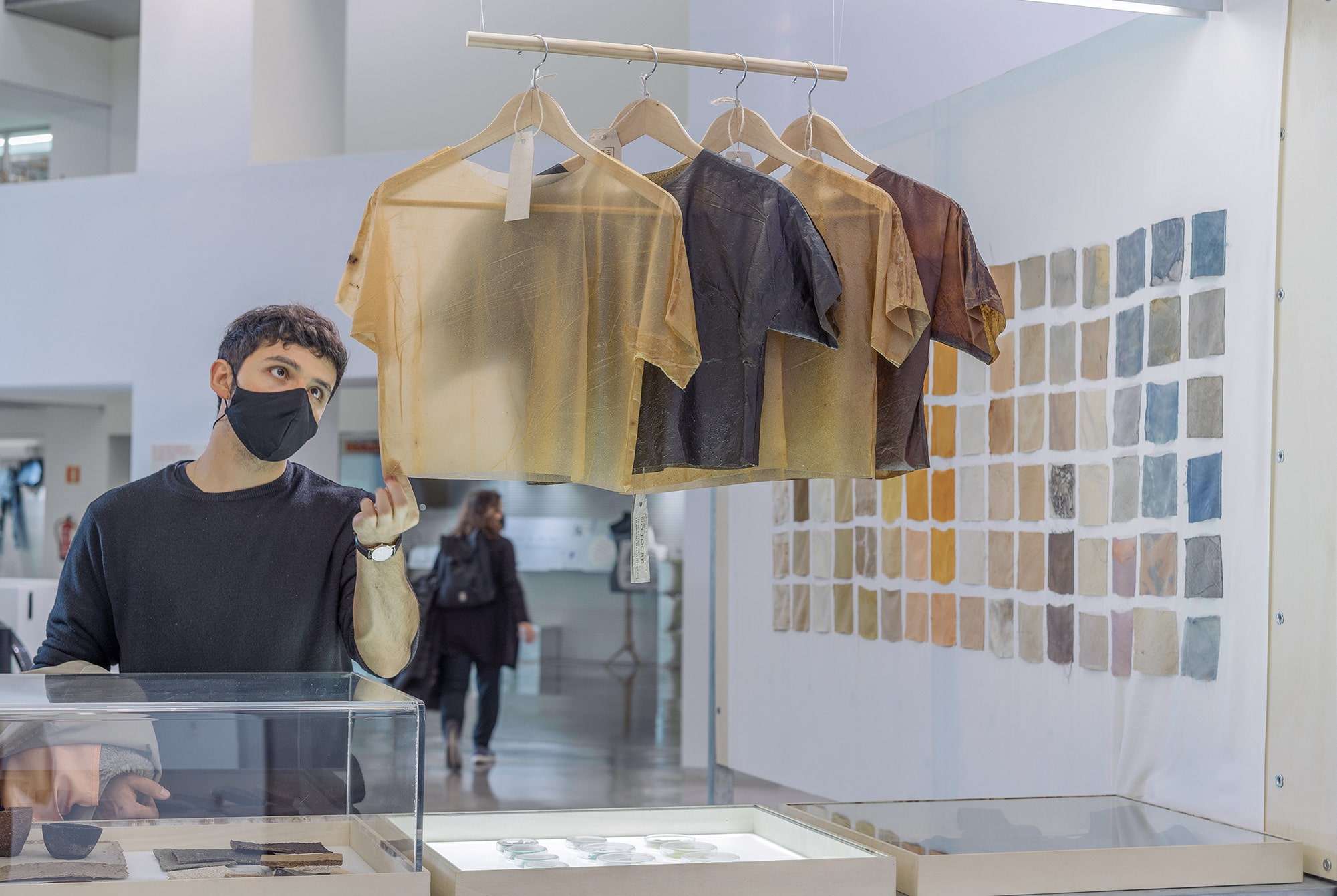
REMIX el Barrio: Biomaterials, Neighbourhoods, and the Future of Local Innovation
What if your morning coffee waste could become the next generation of design materials?
What if your morning coffee waste could become the next generation of design materials?
That’s not science fiction — that’s REMIX el Barrio, a Fab Lab Barcelona spin-off project that just won the S+T+ARTS Prize for the Most Innovative Collaboration in Europe. Born from a European pilot and rooted in the streets of Poblenou, REMIX el Barrio is a collective of designers, restaurateurs, textile experts, architects, and researchers experimenting with the alchemy of waste, design, and community.
At Fab Lab Barcelona, we often say we prototype the future. With REMIX el Barrio, that future smells like orange peel, olive pits, and coffee grounds — and it’s looking more circular than ever.
🎥 Watch the story unfold:
“Coffee husks are transformed into paper. Orange peels into leather. Olive pits into flower pots. Food waste into 3D printed dog snacks. And it all happens in collaboration with local communities.”
From Bio-Waste to Bio-Design
Let’s start with the humble coffee bean. During the roasting process, a fine skin peels away, light and aromatic. This chaff usually floats off as waste — unless you’re designer The Way Miguens, who transforms it into handmade paper and volumetric surfaces for visual storytelling. Why? Because the residue is hyperlocal and globally replicable. If there’s coffee, there’s potential.
Designer-chef Arleny Medina, from the restaurant Leka in Poblenou, developed Circular 2: a line of eco-friendly dog treats made from offcuts and plate scraps — 98% ecological animal protein. As she puts it, nothing is left behind. The bones of the idea? Rethinking food waste at the neighbourhood scale.
In Barcelona, oranges are everywhere. But what happens to the skins after the juice is squeezed? Enter Susana and Elisenda, two educators from a local fashion school, who saw a clear thread between the food and textile industries. Their work prototypes fabrics from orange peels, connecting circular food waste to the future of sustainable fashion.
Because the problem isn’t that we lack materials — it’s that we don’t yet see them.
🎥 Deep dive into the makers:
“In Poblenou, artists and communities are co-designing new materials from the food waste around them. This is design for local ecosystems — and global inspiration.”
Towards a Material Culture Shift
From local cafés to urban farms, REMIX el Barrio began with mapping the ecosystem. Guided by Milena Juárez from Fab Lab Barcelona’s community team, the group didn’t start from zero. They listened. They met composters, designers, restaurant owners — people already experimenting with reuse. And from there, they built trust. That trust became prototypes. Prototypes became products. And products led to possibility.
Lara, a materials designer, speaks about recognising the agency of materials. What does it mean to design with materials, not just from them? It’s a question that drives many of our projects at Fab Lab Barcelona — from biomaterials to AI — and one that REMIX has taken to heart.
🎥 See the tech in action:
“From grinding and dehydration to CNC milling and 3D printing — Remix connects digital fabrication with natural systems to build a circular material ecology.”
From Experiment to Application
REMIX el Barrio isn’t just a feel-good story about sustainable design. It’s a push to bring experimental biomaterials into the mainstream. Architects Josean and Silvana from The Nice Factory Lab shifted their focus from ephemeral event spaces to developing new biomaterials from olive pits — a Mediterranean waste stream with serious potential. They’re not just experimenting; they’re scaling.
Their vision? Materials that are 100% biodegradable, designed with transparency, and made to return to the earth — without guilt or greenwashing.
The collective found a key partner in Matter FAD, Barcelona’s material innovation centre. Now, samples from REMIX — coffee stone, orange leather, olive composites — are archived, catalogued, and shown to manufacturers looking for low-carbon alternatives.
Because innovation isn’t innovation until it leaves the lab.
🎥 Explore the industry link:
“By working with Matter FAD, Remix connects their material prototypes with real-world industry — proving that circular solutions can scale.”
Remixing the Remix
The future of REMIX el Barrio is one of expansion, not as a brand, but as a framework:
A recipe for decentralised material production.
A model for bioregional collaboration.
A toolkit for distributed design.
The team is now forming an association and imagining how to run global-local pilots that blend online co-creation with in-person making. Like the best recipes, the ingredients are simple: food waste, open tools, creative people, and a strong local fabric.
And most importantly — it works. Participants have gone on to lead workshops, develop client-ready products, open showrooms, and consult with industry. It’s not just design — it’s infrastructure for transformation.
None of this would have been possible without the incredible community of Remixers: designers, chefs, researchers, educators, neighbours and collaborators who came together to imagine new futures from the leftovers of the present. Your creativity, commitment and care continue to turn what was once waste into tools for transformation. Thank you for showing that circularity is not just a concept but a practice. One rooted in place, powered by collaboration and open to everyone. This is just the beginning. Stay tuned for new tools, new pilots and new remixes. The future is still being made.
🌀 REMIX el Barrio
A project born in Poblenou. A model for the world.
Winner of the 2024 S+T+ARTS Prize for Innovative Collaboration.